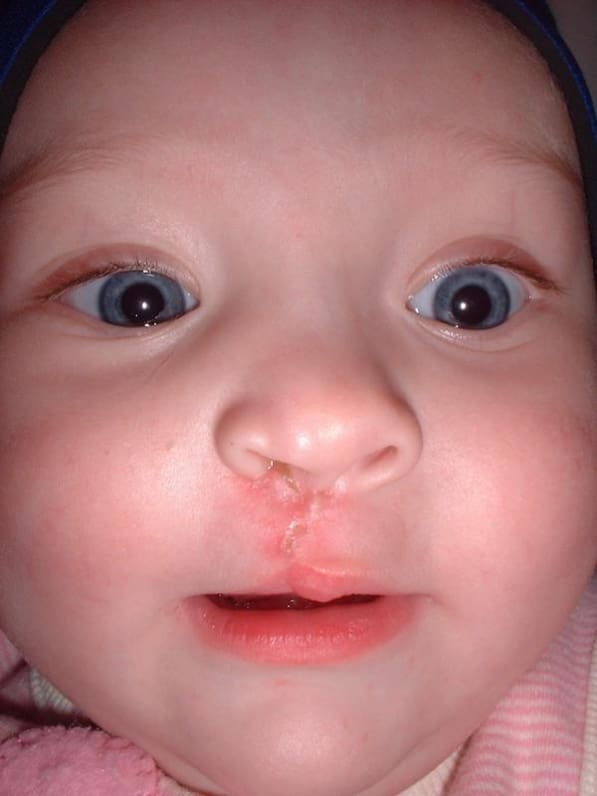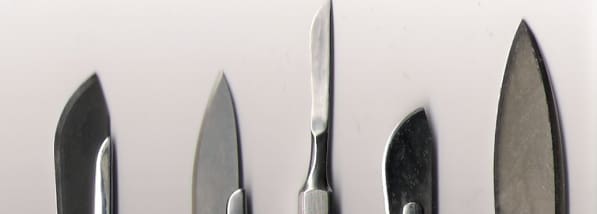I was wondering what is God’s opinion on plastic surgery. I didn’t know if there was any information in the catechism, Bible, or something said by a saint on this matter. I personally have struggled with wanting to have it but, I don’t want to offend our Lord. I’m hoping you might know the answer. Thanks in advance!
As far as I know, the topic of plastic surgery was never broached explicitly in the Bible, nor has it been specifically addressed in the Church’s magisterium. So in order to know “God’s opinion” about it, we will have to analyze it in terms of human nature and basic moral and spiritual principles. I hope that doesn’t turn you off!
To start out, it’s pretty clear that you have already received an important grace in this regard. You have some doubts about this issue, and so you are seeking clarity. This in itself is a sign of an active interior life, a capacity for reflection and for hearing the voice of conscience. The Holy Spirit is at work in your life, and you are listening. What a blessing!
A Moral Matrix
 Any time we make a moral decision, three factors go into determining whether that decision is morally good or evil. In the first place, there is the quality of action in question. Killing an innocent person, for example, is always morally wrong. It violates an objective moral good. In the second place, there are the circumstances surrounding the action in question. Circumstances can never make an evil action into a good action, but they can sometimes make a good action into an evil action. For example, a parent may experience righteous anger towards an incompetent teacher who has caused some problems for his or her child. But expressing that anger in the presence of the child may cause more harm than good. In this case, the circumstance of having the child present in the room would make a perfectly acceptable behavior (rational expression of just anger) into a scandalous one. Thirdly, there is the intention of the person performing the action. An action that seems morally neutral or even good on the surface can actually be distorted by a perverse intention. A good example of this is the prayers and offerings of the Pharisees, which Jesus speaks about in the Gospels. Many Pharisees performed those good actions not in order to give glory to God, but in order to draw attention to themselves. And so, the moral value of those actions was vitiated.
Any time we make a moral decision, three factors go into determining whether that decision is morally good or evil. In the first place, there is the quality of action in question. Killing an innocent person, for example, is always morally wrong. It violates an objective moral good. In the second place, there are the circumstances surrounding the action in question. Circumstances can never make an evil action into a good action, but they can sometimes make a good action into an evil action. For example, a parent may experience righteous anger towards an incompetent teacher who has caused some problems for his or her child. But expressing that anger in the presence of the child may cause more harm than good. In this case, the circumstance of having the child present in the room would make a perfectly acceptable behavior (rational expression of just anger) into a scandalous one. Thirdly, there is the intention of the person performing the action. An action that seems morally neutral or even good on the surface can actually be distorted by a perverse intention. A good example of this is the prayers and offerings of the Pharisees, which Jesus speaks about in the Gospels. Many Pharisees performed those good actions not in order to give glory to God, but in order to draw attention to themselves. And so, the moral value of those actions was vitiated.
So let’s look at plastic surgery in terms of the action, the circumstances, and the intention.
Moral Dimensions
 Plastic surgery in itself comes in many different forms: nose reconstructions, breast enhancements, fat reductions, skin grafts… If any of these surgeries were to damage or distort or mutilate a person’s physical or psychological integrity, they would be objectively wrong. A clear example of this would be trans-gender surgeries – surgically attempting to change one’s gender is not a fruitful path to sexual and personality integration. Even some seemingly innocent (and very common) procedures often have physiological side-effects that can be problematic. So, anyone considering plastic surgery needs to do their homework. Are the physiological (and even economic) consequences or risks really balanced out by the benefits being sought? Reconstructive surgeries that happen as a help to recover from traumas (burns, for example, or breast damage caused by cancer surgeries) seem to produce truly therapeutic outcomes. In these cases, the risks and costs could indeed be reasonable. There needs to be reasonable proportion between the benefit that the surgery will garner, and the risks that the surgery involves.
Plastic surgery in itself comes in many different forms: nose reconstructions, breast enhancements, fat reductions, skin grafts… If any of these surgeries were to damage or distort or mutilate a person’s physical or psychological integrity, they would be objectively wrong. A clear example of this would be trans-gender surgeries – surgically attempting to change one’s gender is not a fruitful path to sexual and personality integration. Even some seemingly innocent (and very common) procedures often have physiological side-effects that can be problematic. So, anyone considering plastic surgery needs to do their homework. Are the physiological (and even economic) consequences or risks really balanced out by the benefits being sought? Reconstructive surgeries that happen as a help to recover from traumas (burns, for example, or breast damage caused by cancer surgeries) seem to produce truly therapeutic outcomes. In these cases, the risks and costs could indeed be reasonable. There needs to be reasonable proportion between the benefit that the surgery will garner, and the risks that the surgery involves.
What about the circumstances? Here it’s harder to make a general judgment. Someone whose livelihood depends on their looks, for example, may have a strong motivation for having a nose reconstruction, for example. Or someone whose health is in danger may need to have surgery that will help lead to healthy weight control. In both these cases, we are dealing with types of surgery that seem to be acceptable in themselves (unlike trans-gender surgeries, for example, or physical mutilation).
In the part two of our post, we’ll look at the spiritual motivations for having plastic surgery and what this means for the integral dignity of the person considering it.
Art: Various scalpels, both fixed blade and replaceable blade, from various manufacturers; 33 days after lip surgery, age at ten months, own work, King97tut; both PD-worldwide, Wikimedia Commons.


